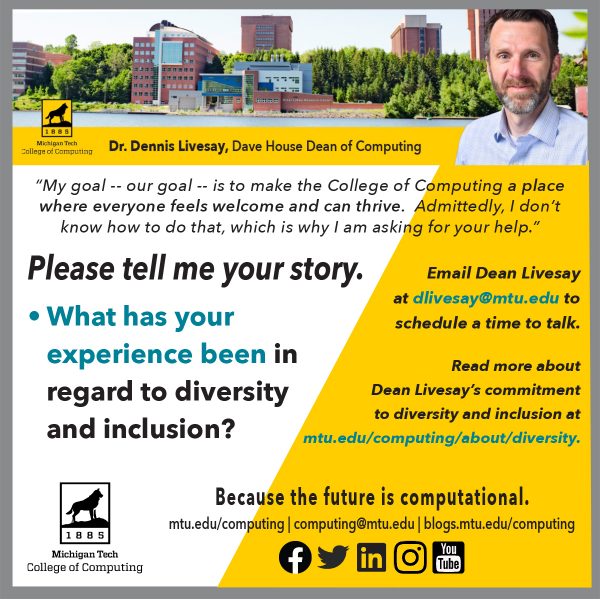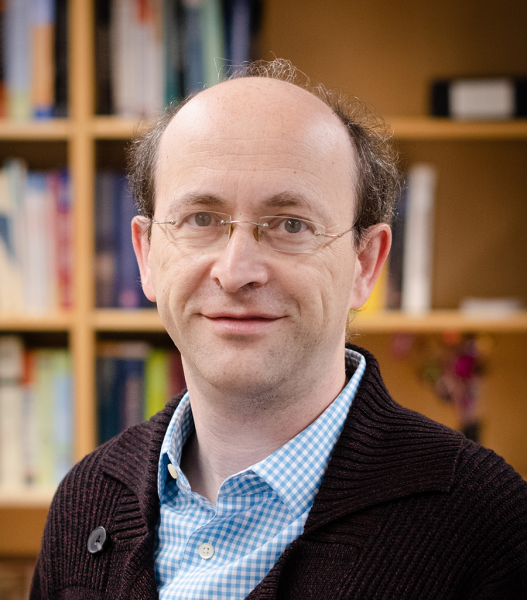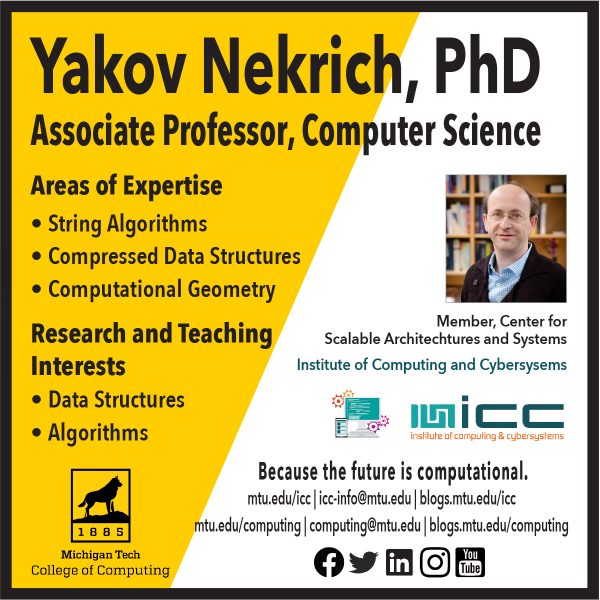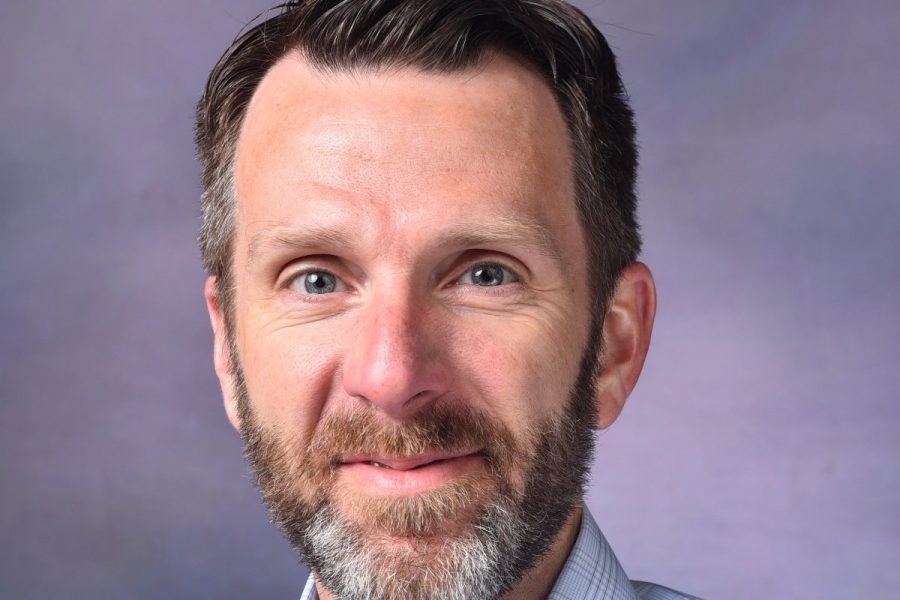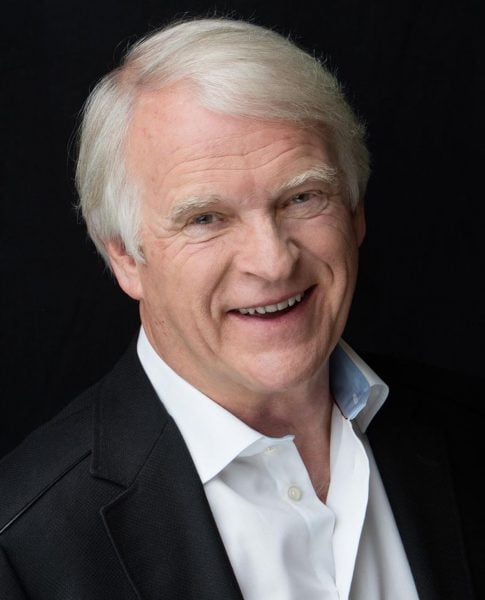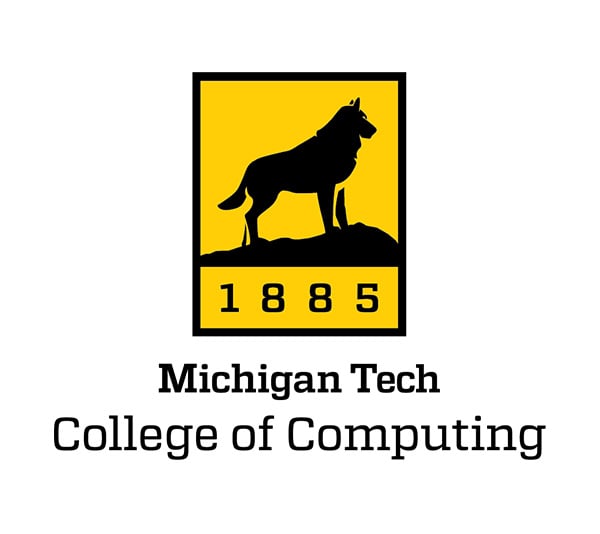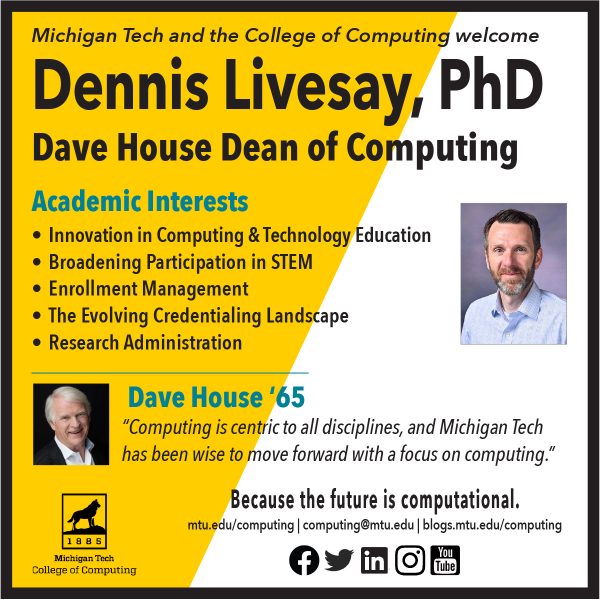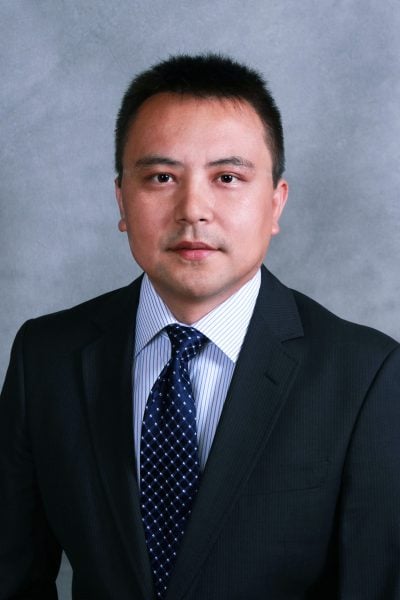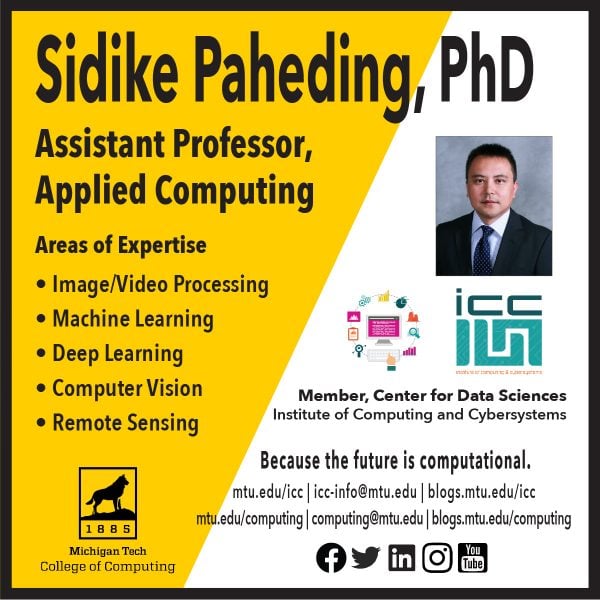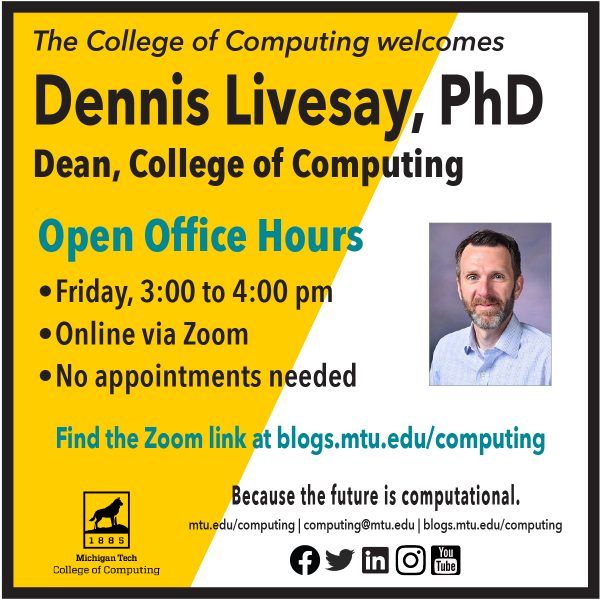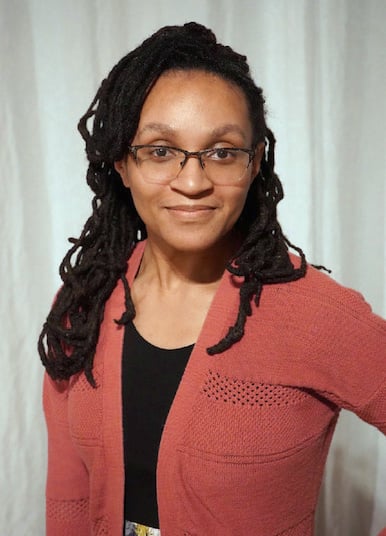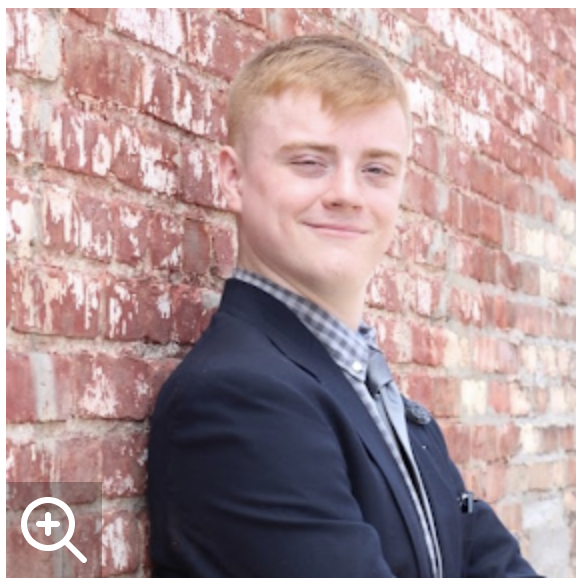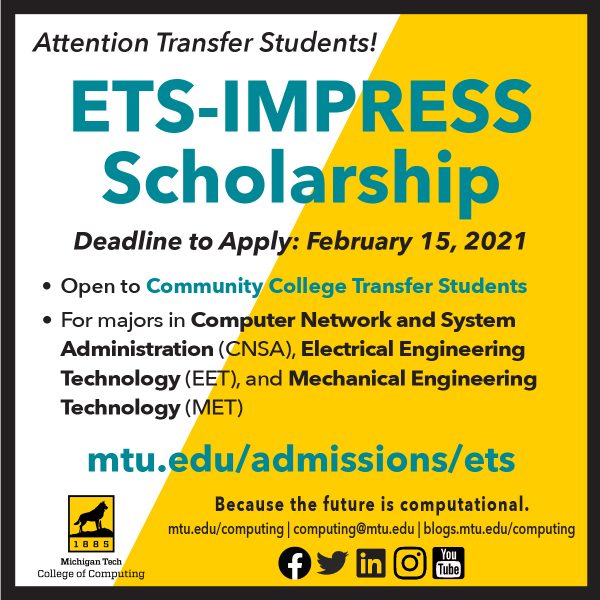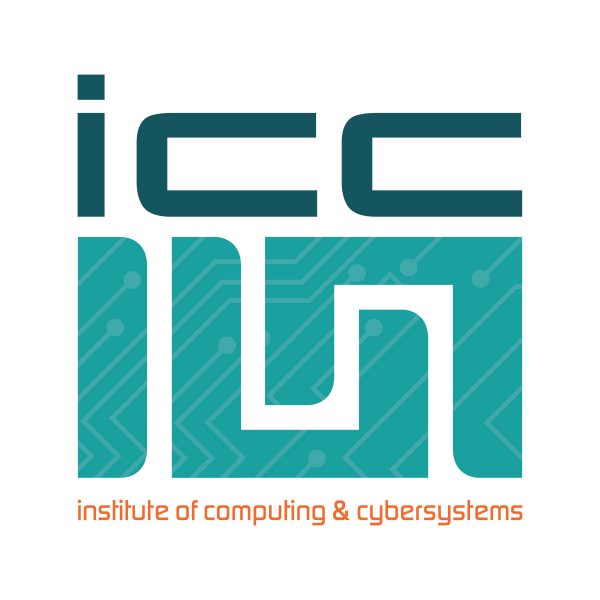
“My goal — nay our goal — is to make the College of Computing a place where everyone feels welcome and can thrive. And admittedly, I don’t know how to do that, which is why I am asking for your help.”
Dean Dennis Livesay wants to hear your story. What has your experience been with regard to diversity and inclusion at Michigan Tech?
What does the Dean need to be aware of as he starts his new position? What is working? What needs to change? How can we improve?
“My commitment to you, in this request and as dean, is that you will always have a forum to speak and be heard on topics of concern to you and our educational community,” Livesay says. “I will ask questions, listen to your responses, seek to understand your experiences, and proactively address your concerns.
Please reach out to Dean Livesay via email (dlivesay@mtu.edu) if you’d like to schedule a time to talk.
“I know that speaking truth to power can be uncomfortable, so please feel free to bring a friend. Our conversation will be completely confidential,” Livesay stresses.
Learn more about Dean Livesay’s commitment to diversity and inclusion here.
